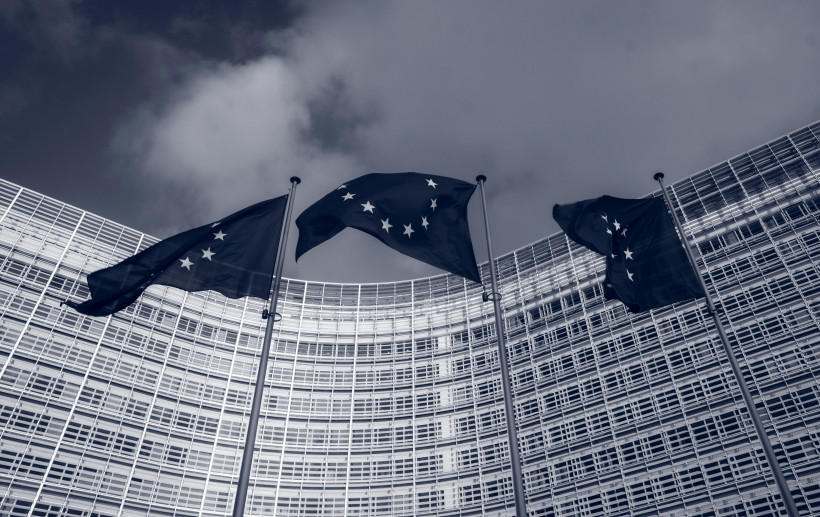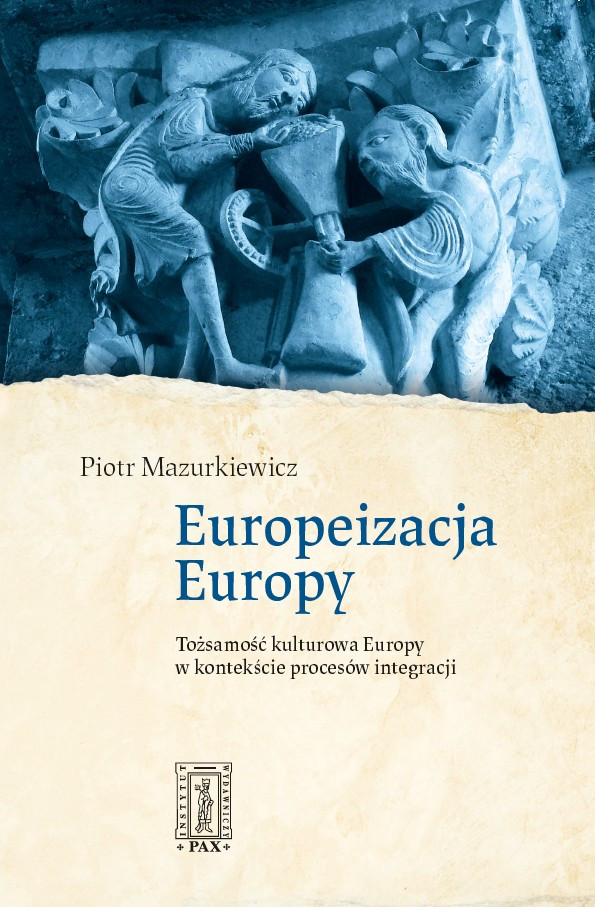
 2026/1/7
2026/1/7
 2024/04/9
Społeczeństwo
2024/04/9
Społeczeństwo

Professor David Engels on the imminent prospect of the end of European civilisation, the reasons for this, and the fact that a life of true faith, goodness, perfection and love is possible under the conditions of any civilisation. Interview by Piotr Sutowicz.
The European civilisation in the form established by Christianity, Greek philosophy and Roman law is in a deep crisis. In your book „Que Faire?: Vivre avec le déclin de l’Europe” you apparently maintain that its fall is inevitable. Isn’t your diagnosis too pessimistic?
Civilisations are mortal, exactly as are human beings and all other merely created things: This is not pessimism, but realism; and even more than that: The belief that there might be social institutions that would be somehow immortal or absolutely self-sustaining would be a grave form of hybris. However, let us be more explicit on two points, the meaning of the “death” of a civilisation on the one hand and the specific nature of religions on the other. Concerning civilisations, their “death” does not necessarily mean a political or material apocalypse; rather the slow fading away of cultural creativity and a gradual fossilisation into stagnation and post-history, where only simplification and copying are still possible until what remains becomes the prey of other civilisations or barbarians. And on the subject of religions such as Christianity, they very often transcend civilisations and thus are perfectly capable to survive in other civilisational surroundings, such as Buddhism that has left India in order to thrive in China and Japan. It could be perfectly possible that the future of Christianity, which originated from the Eastern Mediterranean where it is largely extinct now, may actually die out in Europe and only survive in Africa or South America.
Is the culture of Latin Europe only a museum? Is the old continent’s community of culture really dead?
It is not yet fully dead, but slowly approaching this status, I fear. The comparative study of great civilisations shows that the West has reached a point where the only step still ahead of us would be the construction of a European equivalent of the Augustan principate, as I have demonstrated in my book “On the path towards Empire” (now also available in a wholly updated Polish translation): The crisis of the modern West corresponds in a surprisingly precise way to the evolution of the Late Roman Republic and will probably lead to a phase of grave crisis and civil unrest, that will only be terminated by the advent of some “imperial compromise”, in analogy not only to imperial Rome, but also to the Han Empire in China, the Guptas in India, the Fatimids in Islam or the Ramessides in Ancient Egypt. This was always the final stage of each and every civilisation: a conservative synthesis that gave the civilisation its ultimate form in which it then slowly petrified.
The destruction must have started at some point of time. When was “the beginning of the end” and why nobody noticed it?
All created things have the germs of their own demise in themselves since their very beginning. Did the West start to die with the conflict between nominalism and idealism? The advent of Protestantism? The French Revolution? The World Wars? The takeover of wokism? The process is a gradual one. However, comparing civilisations demonstrates that this evolution follows a broadly dialectic scheme: After an initial “thesis” characterised by political and theological unity and an intense inward piety, we witness an “antithesis” marked by political dispersion, philosophical humanism and the acceleration of expansionism and technology; a conflict resolved by a last, “synthetical” moment consisting in a rational return to tradition. This dialectical movement is the blueprint for the evolution of every civilisation, and given these indicators, we are just a couple of decades away from such the final synthesis.
Why did we, the community of civilisation, let that happen?
Do you “let happen” birth, growth, adulthood, old age and death? They do not come from outside, they are rather the logical steps defining our existence on this earth. It is very similar with social bodies: The initial idea of every civilisation has to unfold in every thinkable way in order to realise all its potential; and once all possibilities are exhausted and the final synthesis reached, there is nothing more to be done and the civilisation fossilises. But of course, there is indeed a personal responsibility involved beyond these inevitable collective dynamics. The diminution of faith, the disinterest in transcendence, the hybris of “homo mensura”, the easy seduction of hedonism, the betrayal of future generations in favour of short-term profits – all this also possesses a deeply moral aspect and indeed is strongly linked to the presence of evil in this world; an evil that seems to be at its peak nowadays, not in terms of spectacular genocides or world wars, of course, but in terms of the dangerous transhumanist belief that humans are able to recreate themselves as they wish, that their fate only depends on themselves and that transcendence is a mere illusion we have to “overcome”…
In your book you recommend a scenario of rebuilding Europe not through official institutions but through new alternative small communities. Is their task a survival only or some new beginning?
Every human existence somehow begins anew each day, as our responsibility is not only towards our civilisation, our nation or our family, but also towards our spiritual wellbeing. Building communities in which it is possible to live a “good life” is thus a task that has its value in itself, whatever the context. But it is true that given the obvious decline of the West in terms of those values that have defined it since at least a thousand years, it is high time to consolidate what is left in order to survive the coming decades of crisis and civil unrest. Only if we build true model communities in which we can experiment the ideal fusion between modern living conditions and transcendent values, lead an exemplary life and show the way to all those in doubt, we can hope to impose this model once wokeism has led itself ad absurdum. Of course, I do not expect that these communities will lead to a true cyclical “renewal” of the West which is, I am afraid, largely exhausted and has spent itself. However, a “good life” has its reward in itself, and it is possible to lead a life of true belief, goodness, excellence and love under all civilisational conditions – be it in the Middle ages, the Baroque era, the Victorian Age or the 22nd century.
As regards details of your concept I am worried whether it is achievable these days, and whether contemporary states of growing totalism would not want to annihilate such communities.
Indeed, this is the main problem we have to be prepared for, which is also why such model communities need to be very flexible and adapt to the most different exterior conditions. However, our historical memory shows that even in the darkest hours of national-socialism and communism, there have been people and communities that managed, often at the peril of their own life, to maintain their values and teach a new generation; and very often, it was thanks to their efforts that some form of reconstruction after the self-destruction of totalitarianism was possible. Of course, the current woke state will do everything it can in order to destroy such communities – but history has also shown that “the blood of martyrs is the seed of the church”, and that true inner conviction always has the upper hand – if not on earth, then in heaven, which should be our main endeavour.
Thank you for your time.
 David Engels was professor and chair of Roman History at the University of Brussels (ULB) and currently works as senior analyst at the Instytut Zachodni in Poznań, Poland, and as lecturer at the university ICES, France. Author and editor of numerous scholarly books and papers on ancient history, reception history, the philosophy of history and modern conservatism, he is chiefly known through his study "Le déclin" (2013), where he compared the crisis of the EU to the decline and fall of the Roman Republic in the 1st c. B.C., and through his books "Renovatio Europae" (2019), "Was tun" (2020) and "Europa Aeterna" (2023), all published in numerous translations.
David Engels was professor and chair of Roman History at the University of Brussels (ULB) and currently works as senior analyst at the Instytut Zachodni in Poznań, Poland, and as lecturer at the university ICES, France. Author and editor of numerous scholarly books and papers on ancient history, reception history, the philosophy of history and modern conservatism, he is chiefly known through his study "Le déclin" (2013), where he compared the crisis of the EU to the decline and fall of the Roman Republic in the 1st c. B.C., and through his books "Renovatio Europae" (2019), "Was tun" (2020) and "Europa Aeterna" (2023), all published in numerous translations.
